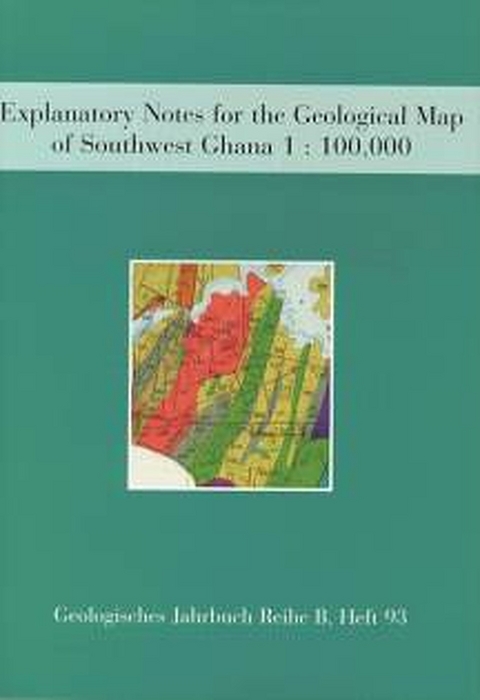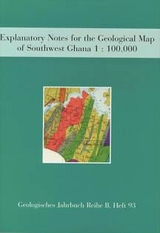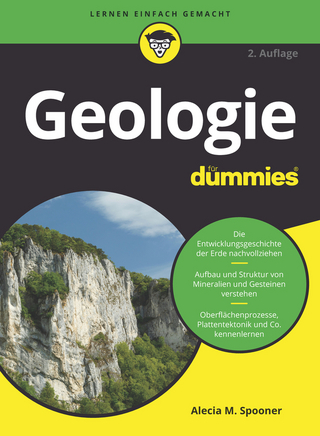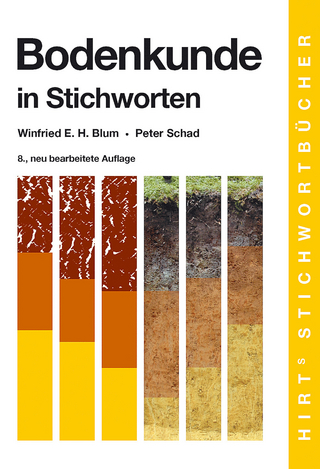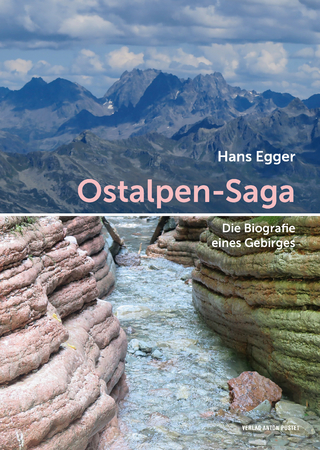Explanatory Notes for the Geological Map of Southwest Ghana 1:100,000 Sekondi (0402A) and Axim (0403B) Sheets
Seiten
1999
Schweizerbart'sche, E. (Verlag)
978-3-510-95841-2 (ISBN)
Schweizerbart'sche, E. (Verlag)
978-3-510-95841-2 (ISBN)
This volume presents the results of geological mapping and research work performed in southwestern Ghana. The studied area covers about 2000 km2 and comprises the land surface south of latitude 5° N and between longitude 1°30' W and 2°30' W. It is prospective for gold and manganese and includes supracrustal and intrusive rocks of the Birimian Supergroup, subordinately sedimentary rocks of the Tarkwaian Group, as well as minor, late-kinematic basin-type granitoids - all of Paleoproterozoic age. Furthermore, Paleozoic and Cretaceous sediments are present locally. The two geological sheets at the scale of 1:100,0000 (Axim and Sekondi) and cover the southern tip of the Ashanti volcanic belt which is the prime gold producer of Ghana, the southernmost part of the Kumasi sedimentary basin and migmatitic gneisses representing a comparatively deep crustal level of the Cape Coast sedimentary basin. Most of the investigated terrane, however, is occupied by three major synvolcanic/belt-type granitoid plutons from which precise U-Pb zircon crystallization ages of 2172 + 2 Ma and 2174 + 2 Ma are available. Regional foliation trends NE-SW or NNE-SSW, being the result of Eburnean NW-SE compression of the terrane. Three major high-strain zones occur, one of which represents the southern continuation of the important gold-bearing Prestea-Obuasi-Konongo high-strain zone. 26 gold occurrences and four manganese occurrences - abandoned European as well as active and abandoned native ones - were inventarized and their characteristics and features are presented in tabular form. The two most important regional controls for gold deposition seem to be the high-strain zone in and adjacent to the belt/basin transition zone on the western flank of the Ashanti belt, in accordance with conceptions previously established by GSD and BGR, as well as sheared granitoid/greenstone contacts. Chapter 1 of these Explanatory Notes is introductory, whereas Chapter 2 summarizes the present state of knowledge of Birimian and Tarkwaian rocks in Ghana and the neighbouring countries. Chapter 3 describes the geology, petrography and some geochemistry of all the different lithological units distinguished on the 1:100,000 geological maps. Chapter 4 outlines isotopic constraints and results of precise radiometric dating carried out on zircon, monazite and titanite. Chapter 5 lists and briefly describes abandoned gold mines, prospects, and occurrences encountered in the project area, as well as manganese and kaolin occurrences. Chapter 6 summarizes the geological data obtained, emphazising features of importance for further geological investigation and/or exploration. The explanatory notes are accompanied by two full-color map sheets
| Reihe/Serie | Geologisches Jahrbuch, Reihe B ; 93 |
|---|---|
| Zusatzinfo | 50 Abb., 19 Tab., 1 Kte |
| Sprache | englisch |
| Maße | 170 x 240 mm |
| Gewicht | 480 g |
| Einbandart | Paperback |
| Themenwelt | Naturwissenschaften ► Geowissenschaften ► Geologie |
| Naturwissenschaften ► Geowissenschaften ► Mineralogie / Paläontologie | |
| Schlagworte | Axim • geological map • Ghana • Ghana /Geologie • Hardcover, Softcover / Geowissenschaften/Mineralogie, Petrografie • HC/Geowissenschaften/Mineralogie, Petrografie • Sekondi |
| ISBN-10 | 3-510-95841-1 / 3510958411 |
| ISBN-13 | 978-3-510-95841-2 / 9783510958412 |
| Zustand | Neuware |
| Haben Sie eine Frage zum Produkt? |
Mehr entdecken
aus dem Bereich
aus dem Bereich
